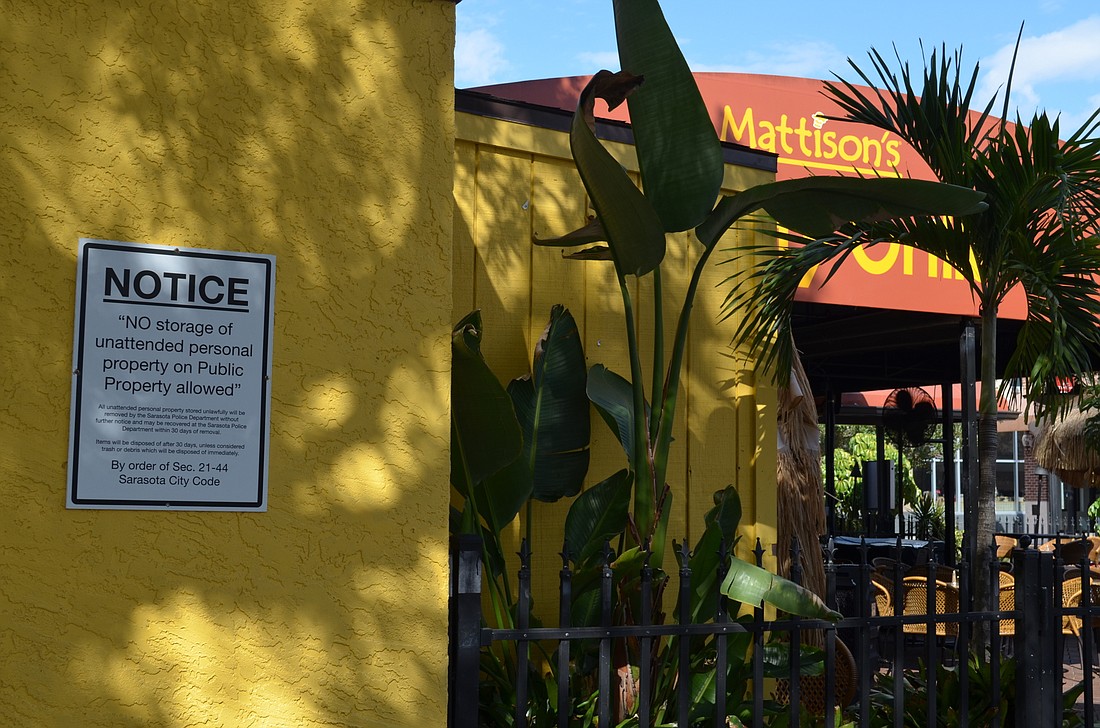- July 26, 2024
-
-
Loading

Loading

In response to complaints from downtown business owners, the City Commission is considering regulations that would prohibit sitting or lying down on sidewalks in specific business districts.
Although public testimony from merchants has specifically targeted homeless individuals, city officials were cautious while discussing the possibility of passing an ordinance, noting that any law would have to be broadly applicable.
Mayor Hagen Brody, who placed the item on the commission’s June 7 agenda, said he was interested in pursuing the regulations as a tool for the business district in the city center.
“I’m most worried about, obviously, our Main Street and some of the side streets where we just have to have a vibrant downtown that people want to come to and spend money,” Brody said.
The commission’s conversation focused on possible regulations inspired by a Seattle ordinance that prohibited sitting and lying down on the sidewalk in specific areas. City Attorney Robert Fournier said any regulations along those lines would have to meet certain standards, including nonarbitrary boundaries where the rules would apply. Fournier mentioned the streets in which the city has installed parking meters as a potential option, stating proximity to financial transactions could be used as a justification for the ordinance.
Fournier said the city would have to be prepared for the possibility of a legal challenge. The city already has regulations prohibiting standing, sitting or lying down in an unreasonable manner that obstructs sidewalks. Fournier said the “unreasonable” standard was added to the ordinance following a legal challenge that said the regulations were too vague. Fournier said the Seattle ordinance was upheld after a legal challenge.
At meetings including the one held June 7, downtown merchants have voiced complaints about the presence of homeless individuals on the street, stating it is disruptive to business. Store and restaurant owners have said customers are unhappy with behavior ranging from panhandling to individuals experiencing health emergencies.
“I’m a very compassionate person, but when it starts obstructing my business, it becomes hard for me,” said Harmoni Krusing Bens, the owner of Lotus Boutique.
City Commissioner Liz Alpert said she believed the city needed to be careful in how it proceeded to ensure the regulations were not crafted to apply to a specific subpopulation. Commissioner Jen Ahearn-Koch echoed those comments, stating the city needed to balance the interests of businesses with the needs of people on the street.
“On the one hand, we have to take into consideration the merchants and what they are going through and the downtown residents as well,” Ahearn-Koch said. “On the other hand, these are members of our community that have problems and issues and need help. I would caution us all to be respectful and deal with this in a very cautious and respectful way because these are human beings, and we need to be sensitive to that as well.”
Brody said the regulations he was pursuing would not target a specific population. Brody and Commissioner Erik Arroyo noted the city offers a variety of services for people who are homeless, and Arroyo suggested more regulations could help improve the city’s outreach efforts.
“It’s a great opportunity to introduce these individuals that may need services to the continuum of care and housing opportunities and that there’s lodging and food available and case managers and mental health services,” Arroyo said.
Kevin Stiff, the city’s homelessness response coordinator, said he thought the city had a right to govern public space, but he said communication should be a priority.
“I think any action taken by the commission should also make sure that there’s an opportunity for individuals who are engaging in these activities to understand what is permitted and what isn’t in the city,” Stiff said. “And if it’s not permitted in this zone, where they can do it legally.”
The commission voted unanimously to continue its conversation about regulatory options, empowering Fournier to prepare a draft ordinance for discussion.